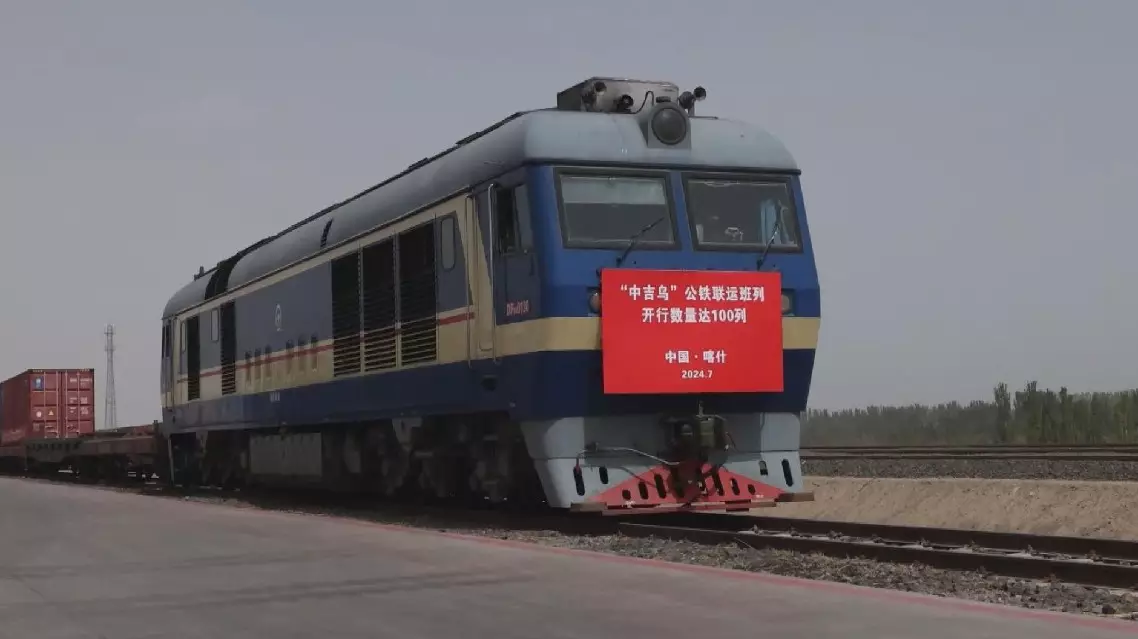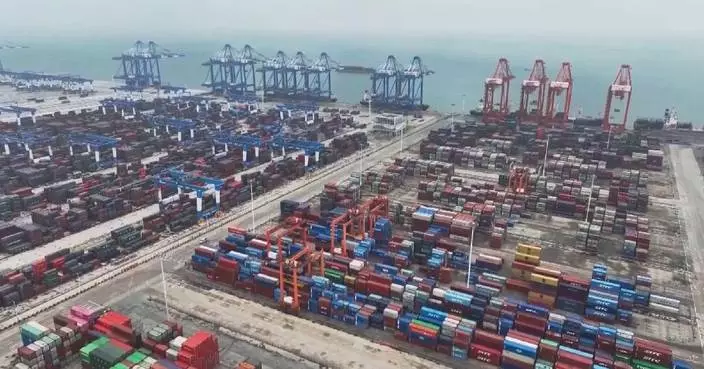Fu Bao, a celebrity giant panda born in South Korea and returned to China in early April, is expected to meet the public in June at its new home in southwest China's Sichuan Province.
On May 4, Fu Bao ended its month-long quarantine and moved into the Shenshuping Base in Wolong National Nature Reserve. The bear is gradually adapting to the new environment and is in good health.
According to the breeder, giant pandas often need to go through quarantine and an adjustment period after returning to China from overseas. The quarantine usually takes a month and the adjustment, a little longer. The time needed to acclimatize to a new living environment, climate, food and breeding team varies from panda to panda.
Fu Bao has been placed inside the base's breeding park, where there are communication windows between each panda's enclosure, allowing it to quickly get familiar with its neighbors. It's also easier for breeders to observe and record the panda's behavior at close quarters.
Beloved Fu Bao, which means "lucky treasure," is the first giant panda that was born in the Republic of Korea (ROK) to Le Bao and Ai Bao, the pandas leased by China to the country in 2016. It will turn four years old in July. Fu Bao is a celebrity in ROK as well as in China and the public eagerly awaits her debut.

Returned ROK-born giant panda Fu Bao to meet Chinese public in June

Returned ROK-born giant panda Fu Bao to meet public in June
The China-Kyrgyzstan-Uzbekistan road-rail intermodal transport service had handled a total of 100 trains this year as of Friday, marking a regular and expanded operation of the intermodal transport service, according to the China Railway Urumqi Bureau Group Co., Ltd. in northwest China's Xinjiang Uygur Autonomous Region.
Since the beginning of July, the number of cargo trains arriving in Xinjiang's Kashgar City for further transit has increased to an average of two per day.
"The China-Kyrgyzstan-Uzbekistan road-rail intermodal transport system capitalizes on Kashgar's favorable location, cutting transit time by around five days compared to other routes and reducing costs by nearly 30 percent," said Fang Zijun, a business manager at Kashgar inland port multimodal transport company.
In March, Kashgar Customs implemented a new clearance model where goods are inspected at the point of origin, allowing them to be proceeded directly to their destination without additional customs checks at the border. This change has reduced customs processing time from three to five days to just six to eight hours, significantly enhancing the efficiency of the multimodal transport service.
In the past five years, Kashgar has handled trains from various regions across China such as south China's Guangdong-Hong Kong-Macao Greater Bay Area (GBA), north China's Beijing-Tianjin-Hebei region, southwest China's Sichuan Province and east China's Jiangsu Province.
These trains carried over 300 types of goods, ranging from new energy vehicles to machinery components, opening up a new international trade channel that stretches to Central and West Asia, as well as Europe.

China-Kyrgyzstan-Uzbekistan road-rail transport system achieves milestone with regular, expanded operations











